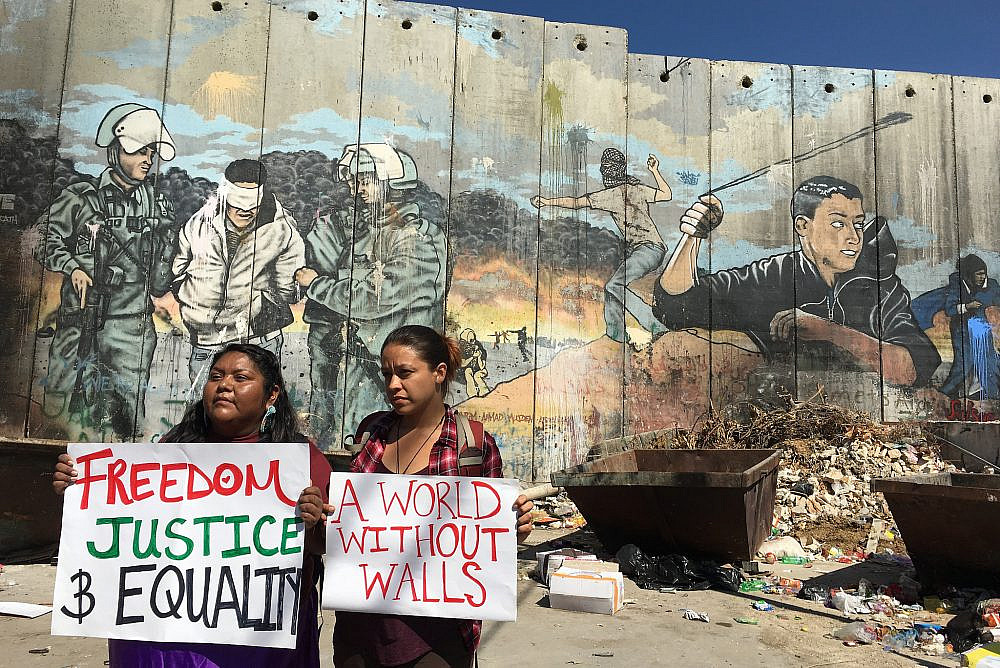Two organizations with close ties to the Israeli government have teamed up on a federal lawsuit targeting the U.S. Campaign for Palestinian Rights (USCPR), one of the leading Palestine advocacy groups in the United States.
The civil lawsuit, which marks an escalation of the Israeli-led campaign against global Palestinian rights activism, was filed by the Keren Kayemeth LeIsrael-Jewish National Fund (KKL-JNF, often referred to simply as JNF), the quasi-public body that owns 13 percent of state land in Israel and holds significant sway within Israeli land bodies. The International Legal Forum, an Israeli legal group that has received funding from the Israeli government, is advising the JNF on the case.
Palestinian rights advocates say the lawsuit is the latest example of a strategy pursued by Israel and its allies to bog down Palestine activists in legal battles. A chief goal of this strategy, they say, is to divert the activists’ resources away from their advocacy to end Israel’s human rights abuses, while forcing them to address the stigma of being labeled as allies of terrorists.
“This is not an attack only on us as USCPR,” said Ramah Kudaimi, the organization’s deputy director. “It’s an attack on anybody who advocates for Palestinian rights. It’s an attempt at repression to chill organizing and chill advocacy, and to make people think twice about coming out in support of the Palestinian people’s struggle.”
The organization Kudaimi helps run has been at the forefront of efforts in the United States to develop the Palestinian rights movement into a force to be reckoned with, both in Congress and in the wider progressive movement.
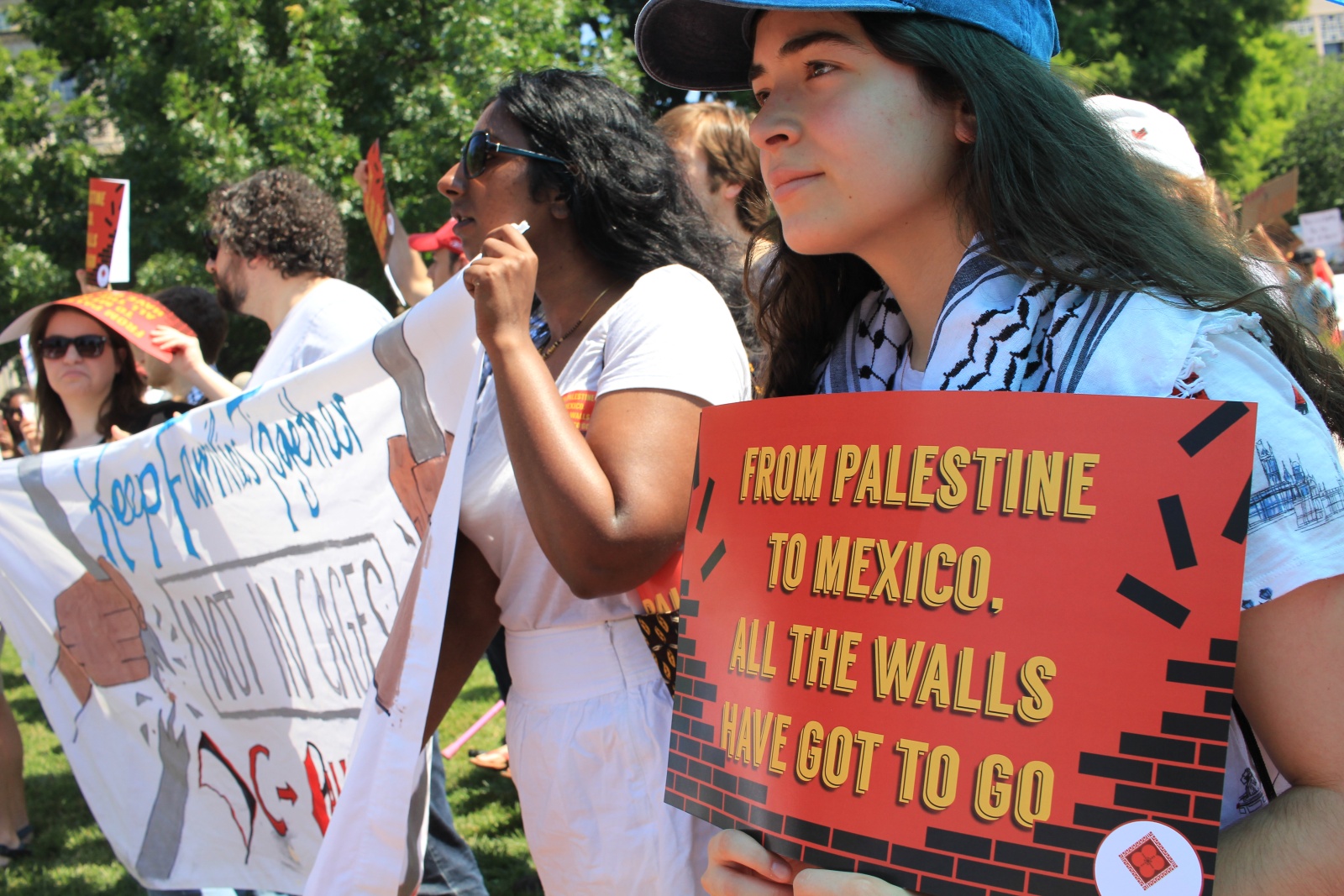
In recent years, the group’s members have helped to garner support for Congressional efforts to hold Israel accountable for human rights violations; build ties with other progressive movements like Black Lives Matter; and assist local organizing, such as campaigns to get cities to divest municipal money from corporations that do business with the Israeli military.
It is precisely that kind of work, though, that has led Israel’s defenders to target them, said USPCR.
‘It’s absurd’
Filed in November 2019, the JNF lawsuit centers on claims that USCPR aided a spate of Palestinian firebomb attacks on JNF land in Israeli areas near the fence separating the Gaza Strip from Israel. In doing so, the lawsuit claims, USCPR violated the Anti-Terrorism Act, which prohibits Americans from providing material support to terrorist organizations.
A dozen Americans who live in Israel near the Gaza Strip are also plaintiffs in the lawsuit. They say they have experienced “severe” anguish from the firebomb attacks on JNF land — attacks that the group accuses the USCPR of having links to, with no hard evidence to back the claim.
The plaintiffs’ reasoning boils down to this: because USCPR was a fiscal sponsor of the Palestinian-led Boycott National Committee (BNC), and because the BNC has ties to a group called the Palestinian National and Islamic Forces, which is a coalition of Palestinian political parties such as Fatah, the Palestinian People’s Party, Hamas and Islamic Jihad, the USCPR is liable for the damages caused by the Palestinian militants’ firebombs from Gaza, which the plaintiffs blame Hamas for.
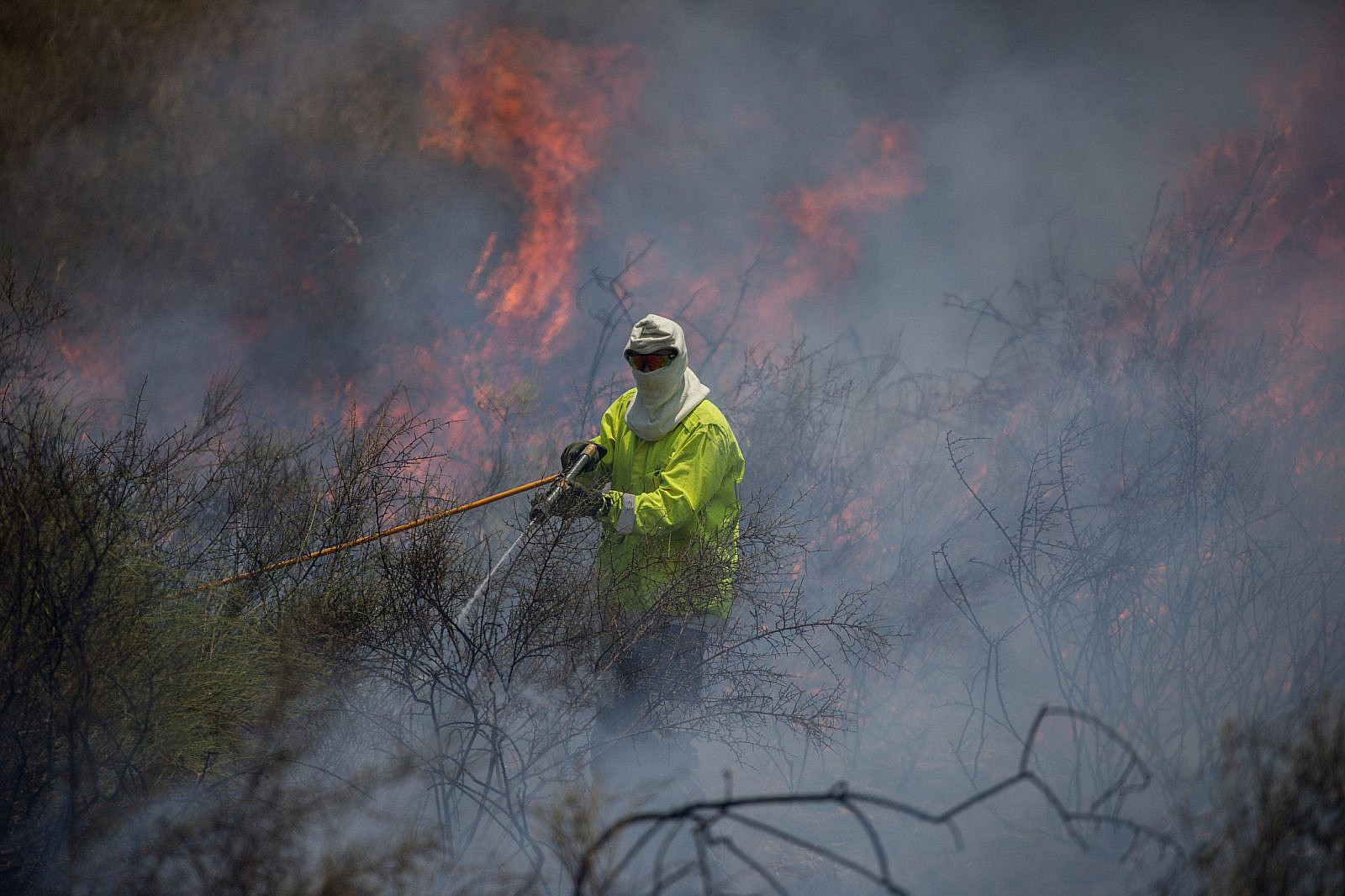
“It is essential to take action against U.S. groups that are complicit partners in funding terror that help enable foreign terror organizations to relentlessly wage a multifaceted campaign of terror against the citizens and lands of the sovereign state of Israel,” said Richard D. Heideman, Senior Counsel at Heideman Nudelman & Kalik PC, in a press statement. (Heideman’s law firm, the JNF, and the International Legal Forum did not respond to requests for comment from +972).
The suit also claims that USCPR’s participation in the “Stop the JNF” campaign — an activist initiative highlighting the JNF’s involvement in efforts to displace Palestinians from their land — is part of an unlawful conspiracy against the organization.
The Center for Constitutional Rights (CCR), the civil liberties group defending USCPR, has rejected these claims, and on March 5 moved to dismiss the lawsuit because it was based on “guilt by association” and did not prove that the USCPR has ties to the firebomb attacks.
“[The lawsuit is] absurd. It’s meritless,” said Diala Shamas, one of the CCR lawyers defending USCPR. Still, she warned that the lawsuit can drain a great deal of time, energy, and money from the activists, especially if a judge allows the case to move to the “discovery phase,” whereby each party can obtain evidence from the opposing side.
“The discovery process is a resource-intensive one,” explained Shamas. “This lawsuit is an attempt to bully our client, to bog down its resources. Absurd allegations like these aim to make advocates toxic and inhibit their work.”
The attempt to use the law to go after human rights work has been a key part of Israel’s campaign to undermine the Boycott, Divestment and Sanctions movement (BDS). The Israeli government, alongside pro-Israel lobby groups around the world, has poured millions of dollars into attacking BDS campaigns that seek to hold Israel accountable for human rights violations.
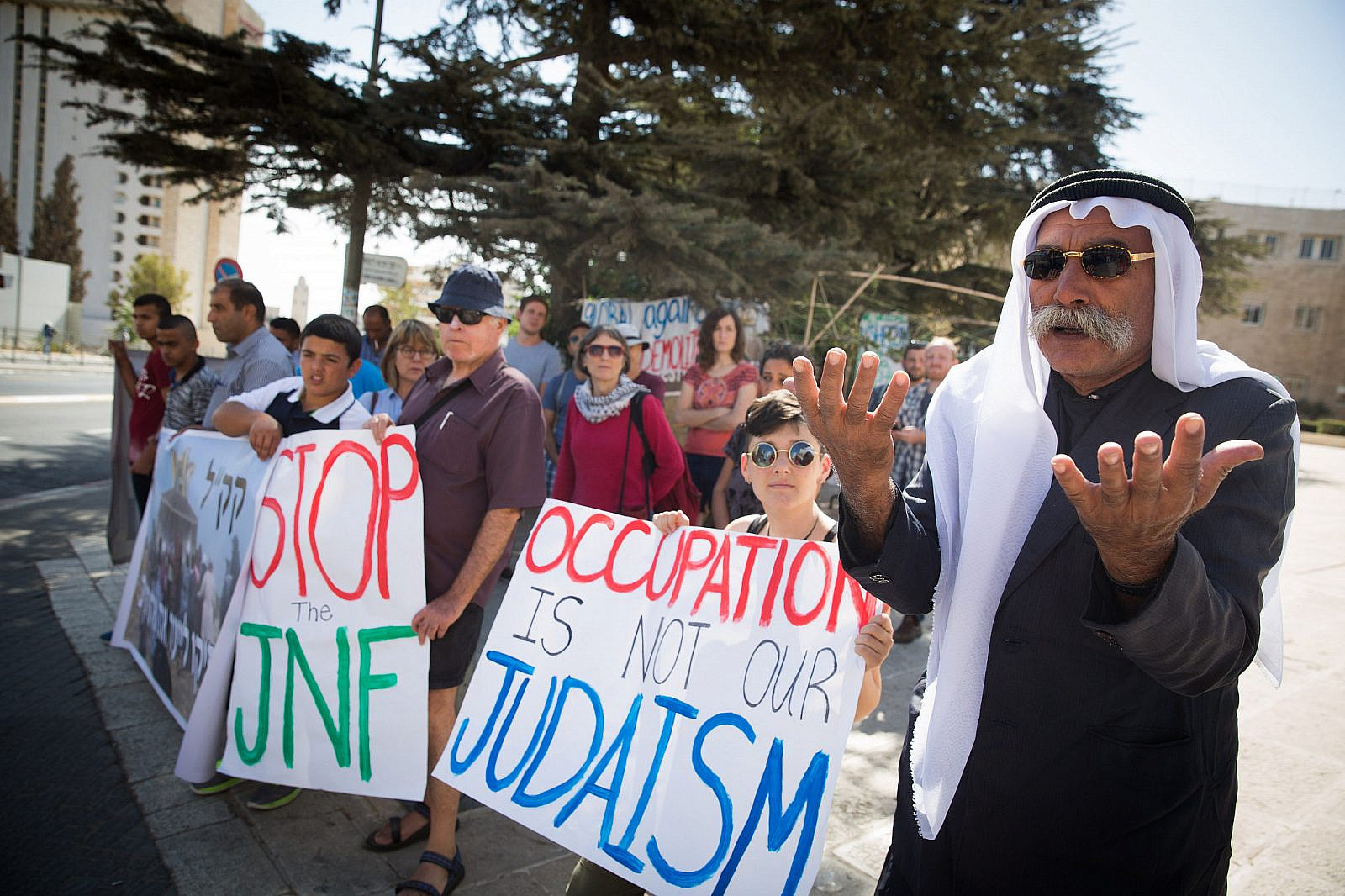
“It’s very clear that this lawsuit is part and parcel of a larger strategy to go after effective grassroots advocacy for Palestinian freedom, especially related to BDS,” said Dima Khalidi, director of Palestine Legal, an organization that focuses on defending the free speech rights of those engaged in Palestine solidarity work. “The claims in this lawsuit echo efforts to distort protected Palestine advocacy into unlawful conduct, such as smear campaigns calling activists ‘antisemitic’ and ‘pro-terrorist.’”
‘They have nothing to back them other than repression’
The United States is at the epicenter of this anti-BDS crackdown. Twenty-eight states have adopted anti-boycott laws, most of which prohibit state contracts from going to groups or individuals that support boycotts of Israel. In some cases, this has forced state contractors to choose between signing a document pledging they won’t boycott Israel, or losing their job.
Opponents of Palestinian rights are also turning to legal threats and federal lawsuits to bolster these efforts. In July 2018, for instance, Zachor Legal, a Zionist legal organization funded by right-wing philanthropists, sent a letter to the Department of Justice requesting criminal prosecutions of U.S.-based Palestinian rights organizations because of alleged violations of U.S. anti-terrorism law.
The International Legal Forum, in particular, has emerged as a key group employing such tactics. The forum, which coordinates a global network of pro-Israel lawyers, has helped to file lawsuits against Spanish municipalities that endorsed BDS and against the city of Durham, North Carolina for passing a resolution against military-style training in Israel for its local police force.
The International Legal Forum is not carrying out its actions alone: it also has the backing of Israel’s Strategic Affairs Ministry, the government agency tasked with targeting Palestinian rights activism.
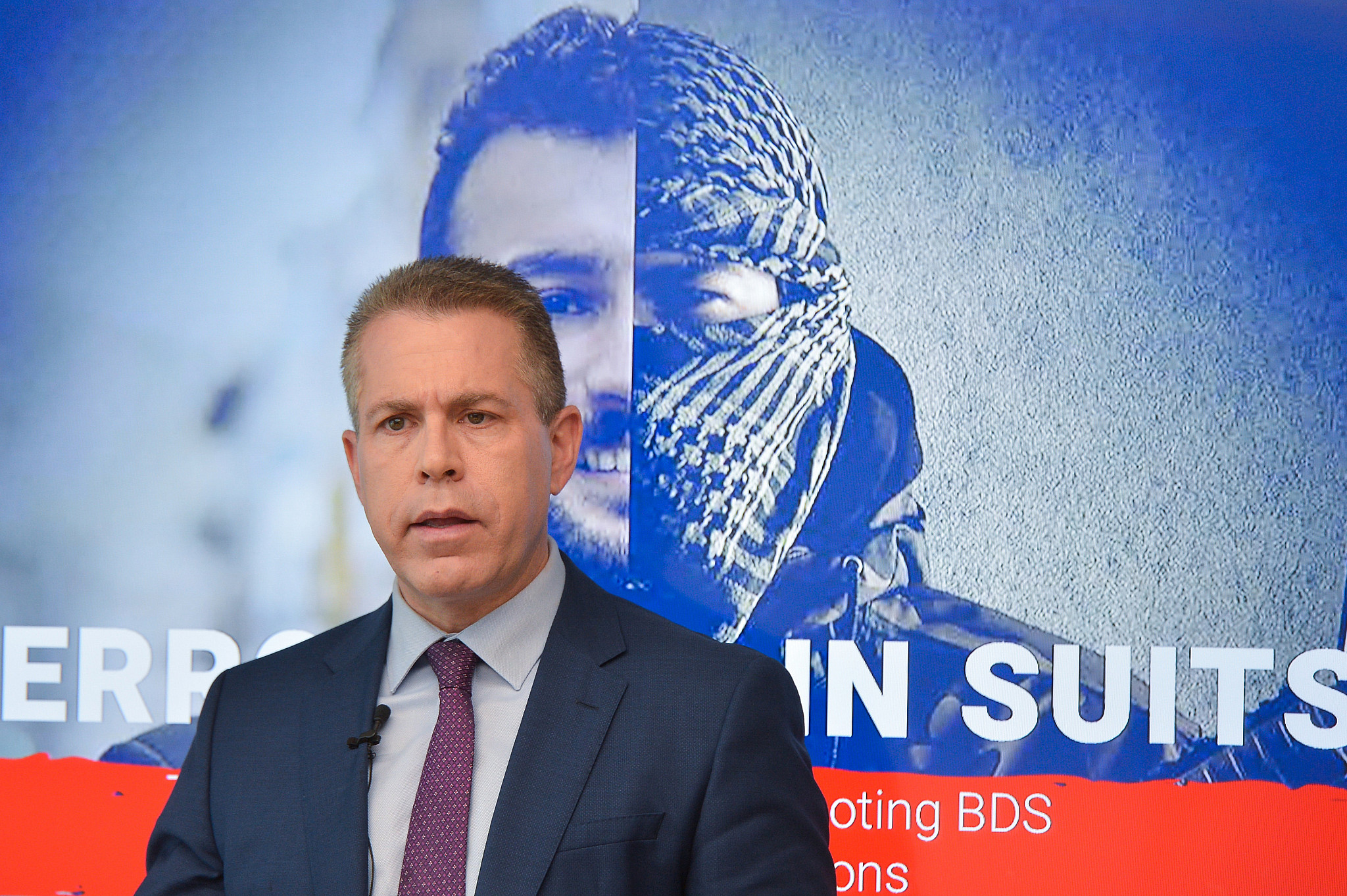
In 2017, the ministry announced its intention to pay the Israel Bar Association to partner with the forum in organizing a conference in Israel on how to combat the BDS movement. The following year, the ministry filed documents stating that it would pay the International Legal Forum up to $1 million to carry out its legal work.
Yifa Segal, the forum’s head, confirmed to me last year that her organization accepted Israeli government money, though at the time said that she could not confirm the exact amount. Segal did not respond to requests for comment for this story.
The current lawsuit with the JNF represents a new tactic for the forum to test: getting a federal judge to agree that a non-violent human rights advocacy group is tied to terrorism.
However, while the lawsuit marks a novel challenge to Palestinian rights work in the United States, some activists see a silver lining in these attacks.
“That they can only depend on these methods to shut down the conversation is a sign that we are prevailing. They know they have nothing to back them other than repression,” said Kudaimi of USCPR.
“We’re an organization that has been dedicated to this work for so long, that has succeeded in pushing BDS campaigns, and that has supported cross-movement struggle,” she continued. “All of these things are very dangerous and threatening to those who want to keep the status quo of apartheid, military occupation, and ethnic cleansing.”


